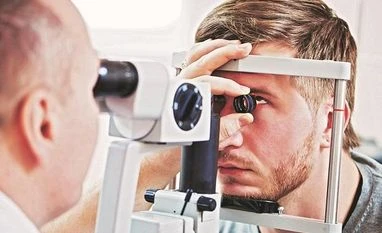Based on data from two large studies of older Americans, researchers found those who had problems with distance vision were also two to three times as likely as those with strong vision to be cognitively impaired.
Regular vision screening of older Americans could help to catch people at greater risk of cognitive problems and dementia, the study team writes in JAMA Ophthalmology.
More From This Section
Vision problems affect 1 in 28 Americans older than age 40, according to the Wilmer Eye Institute in Baltimore. The number of people with vision problems could double by 2050, largely due to cataracts, glaucoma and macular degeneration in the nation’s aging population.
“But (these neurosensory interactions) are increasingly relevant given a growing U.S. population of older adults,” Pershing told Reuters Health by email. “We have greater numbers of individuals who are experiencing diseases and functional limitations of aging as they grow older.”
The study team analysed data from nearly 2,975 participants over age 60 in the yearly National Health and Nutrition Examination Survey (NHANES), as well as more than 30,000 participants over age 65 in the National Health and Aging Trends Study.
Both studies asked participants about their vision, bothersome vision problems and other health issues, and both assessed cognitive impairment and dementia with special tests. NHANES also assessed eyesight objectively with vision tests.
About one quarter of participants in each of the surveys were found to have cognitive impairment or dementia. Most participants in NHANES had good distance vision, with only 9 per cent unable to see someone across the street or watch television across the room. And 14 per cent had difficulty with near-vision. But 30 per cent said they felt hampered by vision problems in their daily lives.
In the other study group, just 7 per cent and 5 per cent of participants, respectively, had distance vision and near vision impairment.
The research team found that having distance vision worse than 20/40 and even the perception of having bothersome vision problems were associated with almost three-fold higher odds of cognitive impairment. Near-vision problems were less associated with higher odds of dementia or cognitive impairment.
“It makes intuitive sense that vision impairment might lead to social disengagement and speed up cognitive decline,” Pershing said. “Similarly, cognitive impairment when severe may result in functional visual impairment, even if the eyes are structurally healthy.”
The American Academy of Ophthalmology recommends regular eye exams in older adults.
But the US Preventive Services Task Force, a government-backed panel that weighs medical evidence, concluded in both 2009 and 2016 that eye screenings don’t lead to enough vision improvement in older adults to recommend them routinely.
The study results are “a reminder and another potential reason for patients to monitor and maintain eye health,” Pershing said.
“Be aware of the potential for vision loss either in yourself or in a family member with dementia or cognitive impairment,” said Jennifer Evans of the London School of Hygiene and Tropical Medicine in the UK, who wrote a commentary accompanying the study.
“Much visual impairment at older ages can be treated, either by a better pair of spectacles or cataract surgery, which is a safe and effective operation,” Evans said.
To read the full story, Subscribe Now at just Rs 249 a month
Already a subscriber? Log in
Subscribe To BS Premium
₹249
Renews automatically
₹1699₹1999
Opt for auto renewal and save Rs. 300 Renews automatically
₹1999
What you get on BS Premium?
-
Unlock 30+ premium stories daily hand-picked by our editors, across devices on browser and app.
-
Pick your 5 favourite companies, get a daily email with all news updates on them.
Full access to our intuitive epaper - clip, save, share articles from any device; newspaper archives from 2006.
Preferential invites to Business Standard events.
Curated newsletters on markets, personal finance, policy & politics, start-ups, technology, and more.
Need More Information - write to us at assist@bsmail.in
)